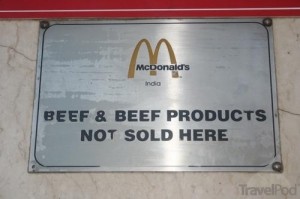Nov
18
2012
“An economy is only as good as its supply of talent” IBM’s vice-president of innovation and relations with universities said in a Globe and Mail report. This captures the necessity for companies to give proper acknowledgement to the minds that allow their business to grow- and continue to do so.
Innovation is not encouraged the same way corporate efficiency is. Narrow management hierarchies that segment workers and create bureaucracy often only serve to marginalize the creative centres in a company. As Zappos has proven with its revolutionary corporate culture of “play hard, work hard”, it pays to treat your employees well. In the technology industry, where the mind of engineers and designers are essential for a company to remain competitive, recognition must be given. Rewarding innovators with vacation time or bonuses not only serve as incentive to stay loyal to the company (as creative minds are in high demand), but also gives them the leisure to create new ideas, products etc. Keeping research and development teams under constant pressure from budget and time constraints often results in decreased productivity, and ultimately, less profits. So as IBM’s VP says, “We need to get back to treating technologists as rock stars.”
Talent techies deserve ‘rock star’ treatment: IBM
Oct
14
2012
This post is in response to Mingchi Choo’s post about McDonald’s vegetarian restaurant venture here.
McDonald’s name is associated with more than beef. The chain’s popularity draws on prices and convenience, which are marketable regardless of what is in its sandwiches. McDonald’s recent move to set up vegetarian restaurants in India shows just that.

McDonald’s seeks to cater to local tastes in its expansion into India.
Opening a line of vegetarian restaurants with items friendly to both beef eschewing Muslims and pork eschewing Sikhs, especially on holy sites is differentiation that could prove hugely profitable. Opting to establish a vegetarian-ized version of McDonald’s allows the company to add to its current value proposition of quick meals at low prices and expand its target market to include culturally sensitive areas. Currently, McDonald’s prices have deterred Indian customers used to buying few rupee samosas, but with India’s rapid development, household income will increase- making fast-food a more attractive option. Will McDonald’s ‘beefed up’ reputation affect Indian patronage? Not likely, as the company entered India with the local culture in mind. None of the Golden Arches’ Indian menus offer beef, instead choosing to serve customized versions of classic American burgers. McDonald’s latest venture once again shows the chain’s ability to “cater to local tastes without losing its brand image” and will likely prove profitable as “India [is] expected to overtake China for the position of the country with the largest population.”
McDonald’s Targets Indian Pilgrams
Oct
01
2012
The proposed $3.4 billion acquisition of Astral Media by BCE Inc. has media giants on high alert. If the deal is approved by CRTC, it would leave Bell Media in control of more than 100 radio stations and almost 90 television channels. Bell’s closest competitor, Shaw, owns just 18 specialty channels and one network.

The major issue of BCE’s takeover of Astral is one of media concentration. If Bell becomes larger, chances are that companies that rely on Astral’s content or Bell’s networks will become marginalized or forced to accept unreasonable deals with Bell in order to keep their services running. If the BCE-Astral deal goes through, Bell will have 33.5% control of English-language television and the capacity to eliminate most domestic competition, which is essential in a market economy. Without a diverse market, there is nothing stopping Bell from charging higher prices for its services, or withholding content from competitors. With strict CRTC regulations against foreign ownership, Bell would have the capacity to run the market as they wish.
If the CRTC allows the transaction to go through, stricter regulations must be put into place against content hoarding to ensure that Bell does not have exclusive rights to content that other service providers rely on. With honest competition, Bell’s expansion could be good news for local film and TV companies, which could gain competitiveness in areas like online entertainment and target a larger audience. In the case that Bell fails to obey market rules, both consumers and competing companies will pay the price.
As BCE pursues growth, competitors cry foul
Sep
13
2012
In recent years, shocking reports that implicate almost every product on Chinese grocery store shelves have been released. After the deaths of six children and reports of some 300 000 more falling ill from food contamination, public scrutiny has fallen other food products.

Recent investigation into Chinese food manufacturing has unearthed the use of a plethora of chemical additives.
The Chinese food scandals serve to provide a prime example of business ethics. A business, in a basic sense, is an institution created and driven by incentives to make a profit, not to benefit society. Business remains inclined to rely on figures, which explicitly state costs and revenue. However, numbers can dehumanize resources and markets to the point that sick children become irrelevant if products are making a profit.
Constantly, businesses abandon social responsibility for profit- taking production shortcuts to save on costs, and doing anything to stay competitive in the marketplace. Provided, profit is the incentive for business to exist, so a lack thereof would effectively halt markets and society. From a purely economic standpoint, as The Social Responsibility of Business is to Increase Profits has, CSR will contribute to inflation and ultimately harm consumers. However, when profits are made at the expense of consumers, a business will lose sight of who is giving them profit and a market for their goods, as well as how sustainable their business really is.
So the main ethical contention China’s food scandals pose? Should we favour on short-term goals such as quarterly earnings over stakeholder and societal benefit?
http://rendezvous.blogs.nytimes.com/2012/06/21/from-milk-to-peas-a-chinese-food-safety-mess/


